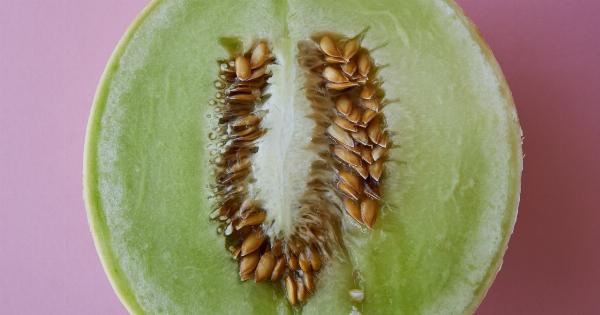Selenium is an essential mineral that plays a crucial role in maintaining our health. It is a powerful antioxidant and is necessary for the proper functioning of our immune system.
However, many people are not getting enough selenium in their diets, which can lead to various health issues. In this article, we will explore the symptoms of selenium deficiency and provide a list of foods that are rich in this important mineral.
The Importance of Selenium
Selenium is a trace mineral that is found in the soil and can be absorbed by various plants. It is an essential nutrient for our bodies as it supports various biological functions. One of the key roles of selenium is its antioxidant function.
It helps to protect our cells from damage caused by harmful free radicals.
Selenium also plays a vital role in the proper functioning of our immune system by supporting the production of antibodies and boosting the activity of natural killer cells.
Additionally, selenium is involved in thyroid hormone metabolism, DNA synthesis, and reproduction.
Common Symptoms of Selenium Deficiency
It is estimated that more than one billion people worldwide are affected by selenium deficiency. This deficiency can lead to several health problems, and recognizing the symptoms is crucial for early intervention.
Here are some common symptoms of selenium deficiency:.
1. Weakened Immune System:
Selenium deficiency weakens the immune system, making individuals more susceptible to infections.
2. Fatigue and Low Energy Levels:
A lack of selenium can result in chronic fatigue and low energy levels, affecting daily activities.
3. Cognitive Decline:
Selenium deficiency has been linked to cognitive decline and an increased risk of neurodegenerative diseases like Alzheimer’s.
4. Thyroid Problems:
Selenium is necessary for the proper functioning of the thyroid gland. Deficiency can contribute to the development of thyroid disorders.
5. Muscle Weakness:
Inadequate selenium intake may lead to muscle weakness, making tasks that require physical exertion challenging.
6. Hair and Nail Issues:
Selenium deficiency can cause hair loss, brittle hair, and nails that easily chip or break.
7. Reproductive Problems:
Both men and women need selenium for optimal reproductive health. Deficiency may lead to infertility and complications during pregnancy.
8. Weakened Bone Health:
Selenium plays a role in bone metabolism and deficiency can lead to weakened bones and an increased risk of fractures.
9. Mood Swings and Anxiety:
Selenium is known to support mental health. A deficiency can contribute to mood swings, anxiety, and even depression.
10. Cardiovascular Issues:
Selenium deficiency is associated with an increased risk of cardiovascular diseases such as heart disease and stroke.
Foods Rich in Selenium
Now that you are aware of the symptoms of selenium deficiency, it is crucial to incorporate selenium-rich foods into your diet. Here is a list of foods that are excellent sources of selenium:.
1. Brazil Nuts:
These nuts are one of the richest sources of selenium. Just a few Brazil nuts a day can provide you with your daily recommended intake.
2. Fish and Seafood:
Fish and seafood, such as tuna, sardines, and shrimp, are good sources of selenium. Including them in your diet can help you meet your selenium needs.
3. Organ Meats:
Organ meats like liver and kidney are high in selenium. However, it is important to consume them in moderation due to their high cholesterol content.
4. Eggs:
Eggs are not only a great source of protein but also contain selenium. Incorporating eggs into your diet is a simple way to increase your selenium intake.
5. Seeds:
Seeds like sunflower seeds and chia seeds are packed with selenium and can be easily added to smoothies, salads, or baked goods.
6. Whole Grains:
Whole grains like brown rice and oats also contain selenium. Opting for whole grain versions of bread, pasta, and cereals can help increase your selenium levels.
7. Mushrooms:
Mushrooms, especially shiitake and white button mushrooms, are excellent sources of selenium and can be included in various dishes.
8. Legumes:
Legumes such as lentils, chickpeas, and beans not only provide plant-based protein but also contain selenium.
9. Dairy Products:
Some dairy products like milk and yogurt contain small amounts of selenium. However, ensure you choose organic and high-quality products.
10. Spinach:
Spinach and other leafy greens contain selenium, along with other essential vitamins and minerals.
By including these selenium-rich foods in your diet, you can prevent selenium deficiency and boost your overall health and well-being.





























